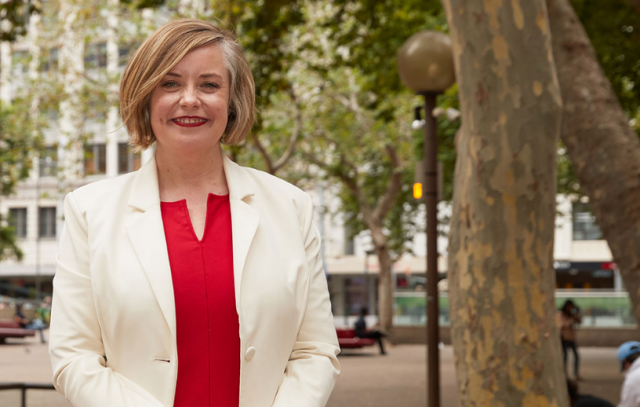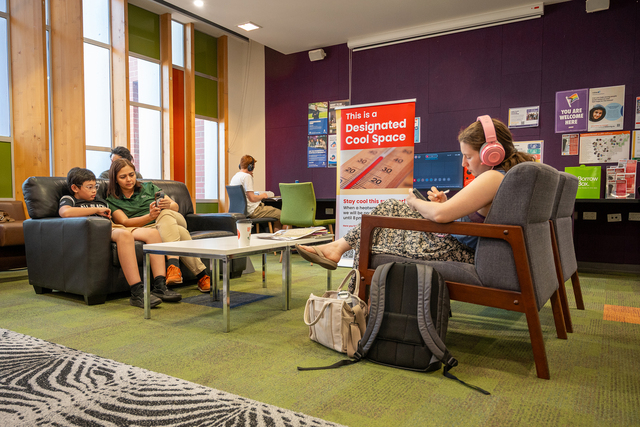A new $707 million program is set to close the gap in employment outcomes in remote Australia and create 3,000 jobs across the region.
The Federal Government’s Remote Jobs and Economic Development Program (RJED) announced in mid-February, has been welcomed by the Australian Local Government Association (ALGA).
The employment program will partner with First Nations communities, with the goal of closing the gap between Indigenous and non-Indigenous Australians.
ALGA President Cr Linda Scott said she believed local governments – many of which are facing widespread skills shortages – will be interested to partner with the Government on the RJED.
“In regional and remote communities, local government is often the biggest employer, and our 2022 Local Government Workforce Skills and Capability Survey shows councils are the largest employer of First Nations people in the Northern Territory, with around half of the workforce being Indigenous Australians,” Cr Scott said.
“As a major employer of First Nations people, we believe councils should be an eligible employer through this program, and we look forward to working with the Government to ensure it delivers on its promise.”
Cr Scott said as the closest government to our communities, councils have a key role to play in reducing Indigenous disadvantage.
“Councils are committed to co-designing programs with all levels of government – and all partners – to increase education and employment opportunities and reduce the barriers experienced by many First Nations people,” Cr Scott said.
“We are dedicated to building a more prosperous and inclusive future for First Nations people based on genuine and respectful partnerships.”
Prime Minister Anthony Albanese said the new Remote Jobs and Economic Development Program is starting in the second half of this year, and aims for self-determination through economic and community development.
The Federal Government is also announcing it will establish a National Commissioner for Aboriginal and Torres Strait Islander Children and Young People to help achieve progress under the Closing the Gap agreement.
Indigenous children are almost eleven times more likely to be in out-of-home care than non-Indigenous children. The National Commissioner will focus on working with First Nations people on evidence based programs and policies to turn those figures around.
Establishing the National Commissioner is the result of extensive discussions with the peak body, SNAICC – National Voice for our Children, which has been calling for an Aboriginal and Torres Strait Islander Children’s Commissioner for many years.
“The National Commissioner will be dedicated to protecting and promoting the rights, interests and wellbeing of First Nations children and young people, as well as calling on their strengths, sense of hope, and ideas for change,” the Prime Minister said.
“The Commissioner will address the unacceptable rates of out-of-home care. What it all comes down to is strengthening families and keeping children safe.
“It is what experts and the Coalition of the Peaks have been calling for, guided every step of the way by the evidence. We have listened.
“The Remote Jobs and Economic Development Program will deliver real jobs with proper wages and decent conditions, developed in partnership with Indigenous communities. These jobs will build skills and experience, and deliver services that communities want.”
An interim Commissioner will be appointed mid-year and will work with the government and First Nations expert advisers to determine the powers, roles and functions of the National Commissioner, which will be established under legislation.
The Prime Minister handed down the 2023 Closing the Gap Annual Report and the 2024 Implementation Plan on 15 February. The report assesses progress and commits to new initiatives focussed on improving the lives of Aboriginal and Torres Strait Islander Australians.
Other key initiatives include:
• $30.2 million for Remote Training Hubs in up to seven remote locations in Central Australia.
• $10.7 million to continue funding for the Justice Policy Partnership, working to reduce incarceration rates.
• Community Wi-Fi services for around 20 remote communities so people can access government services, education and stay connected, with funding arrangements to be settled through commercial negotiations with NBN Co.
• $24 million to expand the Junior Rangers program to 50 sites to boost engagement and attendance rates of First Nations students.
The Government said significant progress has also been made against commitments made in the 2023 Closing the Gap Implementation Plan:
• 183 people have enrolled in the Health Worker Traineeship Program as part of our commitment to funding 500 First Nations health workers.
• We are improving access to safe and reliable drinking water in the remote Northern Territory communities of Yuendumu and Milingimbi.
• We are delivering the Commonwealth’s $100 million investment for urgent repairs and maintenance to housing and essential infrastructure on Northern Territory Homelands – including Utopia, Paru and Rockhole.
• 157 houses are on track to be delivered months earlier than anticipated, easing severe overcrowding in remote Northern Territory communities.
• We are delivering on our landmark justice reinvestment package supporting communities to find local solutions to improve community safety and reduce incarceration rates.
• Over 14,000 First Nations students have enrolled in Fee-Free TAFE courses.
• Work is progressing to improve access to renal services in remote communities for people with end stage kidney disease.
• Applications are open for organisations to expand Indigenous Rangers by up to 1,000 jobs, as part of our plan to double the number of Rangers by 2030.
• Continuing to support the National Aboriginal Community Controlled Health Organisation to employ 260 new workers in community controlled health organisations to deliver cancer treatments and other supports.
Minister for Indigenous Australians Linda Burney said the new program aimed to put communities in the driver’s seat to create local jobs and businesses.
“People in remote communities should have access to the benefits and dignity of work – for themselves, their families and the next generation,” she said.
“Establishing the Aboriginal and Torres Strait Islander Children’s Commissioner is about changing the trajectory and creating brighter futures for Indigenous children and young people.
“The status quo cannot continue and we are committed to making real change, strengthening families and getting better outcomes for Indigenous children and young people.”

















